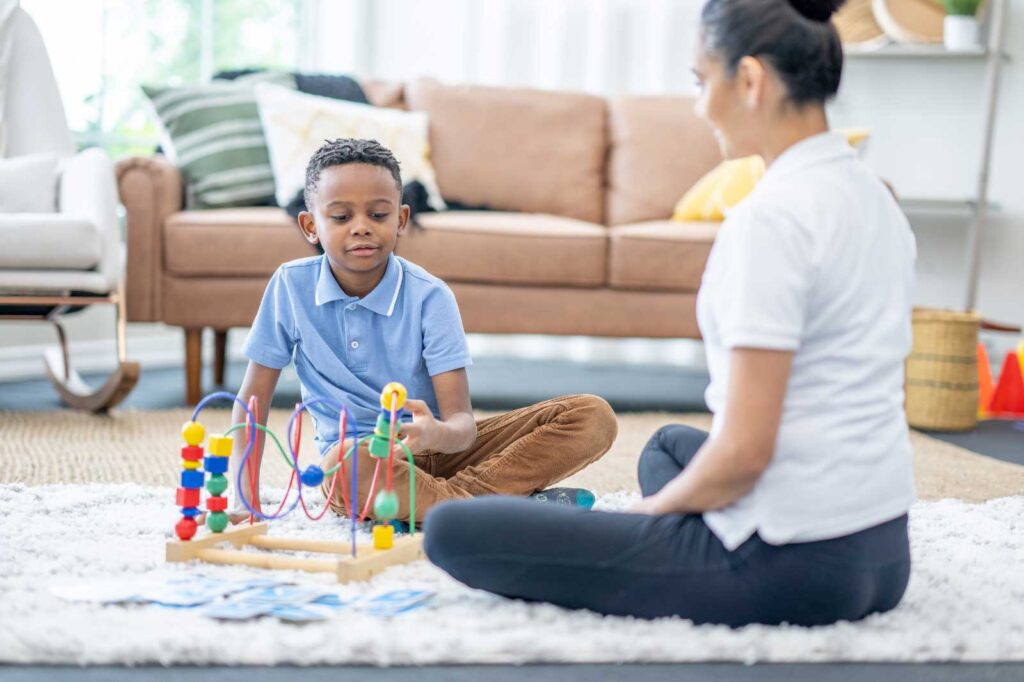A child psychiatrist is a medical doctor who specializes in diagnosing and treating mental and behavioral disorders in children and teenagers. Their extensive training helps them understand the biological, psychological, and social factors that influence a child’s behavior. They take a comprehensive approach to support young people and their families in managing these challenges. Here is more information on how they can help with behavioral issues:
Individual Psychotherapy
Individual psychotherapy, or talk therapy, provides a child with a one-on-one setting to speak with a psychiatrist. During these sessions, the child is typically encouraged to talk about their thoughts, feelings, and experiences. The psychiatrist uses specific therapeutic techniques based on the child’s developmental stage and communication style.
Family Therapy
Behavioral issues may affect and be affected by family dynamics. Family therapy involves the child, parents, and sometimes other family members working together with the psychiatrist. Sessions focus on enhancing communication, resolving conflicts, and strengthening family relationships.
The child psychiatrist helps family members understand each other’s perspectives and identifies patterns of interaction that may contribute to behavioral problems. The objective is to foster a more supportive home environment. By working together, the family learns new ways to interact and support the child. This collaborative method addresses issues at a systemic level, involving everyone in the process.
Parent Training
Parent training equips parents and caregivers with targeted skills and strategies to manage their child’s behavior effectively. These sessions, led by the psychiatrist, focus on practical techniques that can be applied at home. They design the training to empower parents with tools to promote positive behaviors and respond effectively to challenging ones.
Topics a child psychiatrist cover may include:
- Establishing clear and consistent rules and routines.
- Using positive reinforcement to encourage desired behaviors.
- Implementing effective discipline strategies.
The program also emphasizes the need for open communication and building strong parent-child relationships. Parents should practice these techniques regularly and track their progress to identify what works for their family.
This approach gives parents a structured framework for addressing behavioral issues directly. It equips them with the knowledge to create a supportive environment for their child. They can coach parents on how to apply these methods consistently to guide their child’s development.
Medication Management
As medical doctors, child psychiatrists are qualified to prescribe and manage medication. A psychiatrist will conduct a thorough diagnostic evaluation, which may include reviewing the child’s medical history and gathering information from parents and teachers, before discussing the use of medication. If medication is chosen, the psychiatrist will explain the potential actions and side effects of the proposed medication.
Once they prescribe a medication, the psychiatrist can schedule regular follow-up appointments to monitor the patient’s progress. They design these meetings to monitor the child’s response to the medication, manage any side effects, and adjust the dosage as needed. They may use medication in combination with other therapeutic approaches, such as psychotherapy, to address the child’s needs comprehensively.
Book an Appointment With a Child Psychiatrist
Understanding the role of a child psychiatrist and the different ways they can assist is a first step. Their methods are designed to address behavioral issues through a variety of therapeutic interventions. If you believe your child could benefit from this type of support, you are encouraged to take the next step. Contact our office today to book an appointment with a child psychiatrist.

